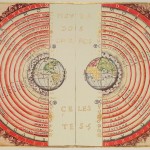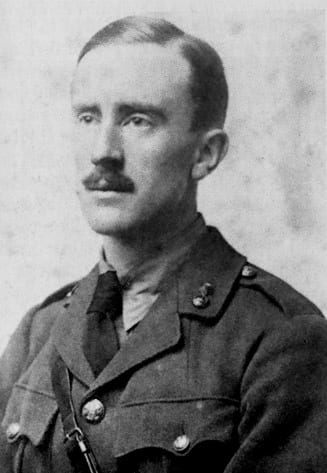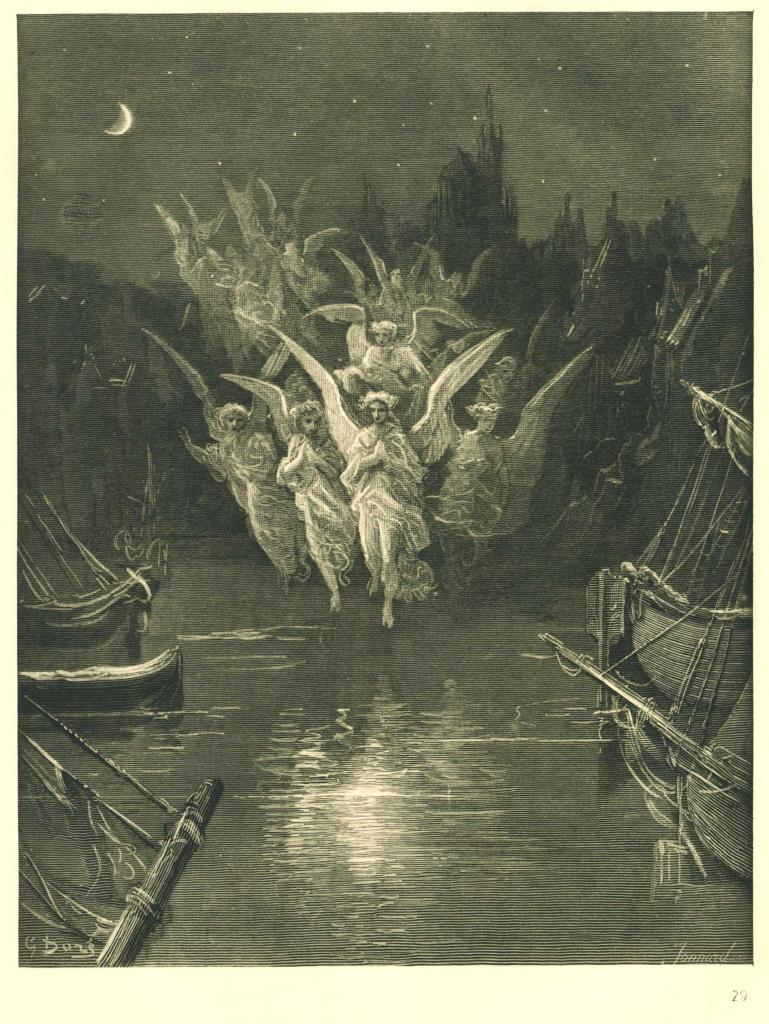David Russell Mosley

Title: The wanderer above the sea of fog
Date 1818
Ordinary Time
27 February 2017
The Edge of Elfland
Hudson, New Hampshire
Dear Readers,
While we have now had a couple of days of sunshine, the other day was cloudy and rainy. Days like this, especially when I can smell the water in the air, I’m transported somewhere else entirely. I am reminded of something I have only rarely experienced: the ocean. And from the ocean, I am transported to Atlantis
Towards the end of Tolkien’s The Lord of the Rings, Faramir and Eowyn are in the House of Healing while Aragorn and the others have gone off to draw Sauron’s eye away from Frodo and Sam. Faramir and Eowyn have been discussing what is to come. Tolkien writes:
And as they stood so, their hands met and clasped, though they did not know it. And still they waited for they knew not what. Then presently it seemed to them that above the ridges of the distant mountains another vast mountain of darkness rose, towering up like a wave that should engulf the world, and about it lightnings flickered; and then a tremor ran through the earth, and they felt the walls of the City quiver. A sound like a sigh went up form the lands about them; and their hearts beat suddenly again (LOTR 962).
‘It reminds me of Númenor,’ said Faramir, and wondered to hear himself speak it.
Those words have often haunted me: “It reminds me of Númenor.”
It is well known that Tolkien (and less well known that Tolkien’s father and his son Michael) all shared dreams of enormous waves inundating an island. Tolkien would later write this into his legendarium, culminating in the story of the downfall of Númenor. However, before the version we get in the Akallabeth, he wrote two different versions of it. One he called “The Lost Road” and the other was in “The Notion Club Papers.” In these versions fathers and sons or friends all share visions, even travels to the past, to Numenor.
One scene in “The Notion Club Papers” stands out to me right now:
The early summer night was still and glimmering, warmer than usual for the time of year. Lowdham leant out, and we turned and stared at his back. The large window looked west, and the two towers of All Souls’ stuck up like dim horns against the stars.
Suddenly Lowdham spoke in a changed voice, clear and ominous, words in an unknown tongue; and then turning fiercely upon us he cried aloud:
Behold the Eagles of the Lords of the West! They are coming over Nūmenōr!
We were all startled. Several of us went to the window and stood behind Lowdham, looking out. A great cloud, coming up slowly out of the West, was eating up the stars. As it approached it opened two vast sable wings, spreading north and south.
Later, Lowdham is asked where he got the word Numenor, but he doesn’t know. He’s asked because another member of the club has used that word (or discovered that word) as a word for Atlantis.
This is something of what I feel when I walk outside and can smell the rain, and sometimes even get a hint of salt in the air. I am transported somewhere else entirely. And like Faramir it is not always pleasant. After all, while Numenor represents a higher point for the men of Faramir’s line, Numenor fell. It perverted itself and worshipped Morgoth. Yet at its highest, it was beautiful, better than anything that can now be expected. It is something like what the Elizabethans called melancholy. It is a kind of reflective sadness, one mixed with nostalgia. This is what I feel when I can sense the ocean in the air.
In Tolkien’s “The Lost Road,” we are given sets of grandfathers, fathers, and sons whose names all mean, in various languages (primarily Anglo-Saxon and some form of elvish) God-friend, Bliss-friend, and Elf-friend. Each set plays out a similar story that involves a longing, a longing for Numenor at its height. A later set actually are given the opportunity to travel through time and see Numenor.
While it is true that I have always felt this sense of melancholic nostalgia when presented with the ocean itself or some sense of it in the air, reading these works of Tolkien (“The Notion Club Papers” and “The Lost Road”) for the first time recently has only added to my sense of longing. Now I have mythic language to help me describe what it is I feel and long for. I long for Atlantis, for Numenor. Yet I know that even this longing ends in sadness. Numenor falls; Atlantis sinks into the ocean. I could take it even further back, I suppose, and say that what I really long for is Eden. But even there disaster strikes, for there is a Fall as well.
And so, when the clouds are in the sky and I can smell the ocean in the air, and more so when I am by the ocean on a cloudy day, I look out and think to myself: “It reminds me of Numenor.” And only Christ’s return can fulfill my longing––though Arthur’s return might give us a glimpse of it––but only Christ can raise Atlantis out of the Sea and make it whole. Only he can crush the Serpent’s head, and make the whole world into an Eden that surpasses that first garden in which our ancestors once wandered. And this gives me both joy and sadness. “It reminds me of Numenor.”
Sincerely,
David
















